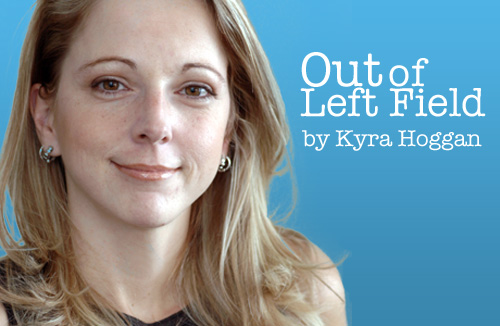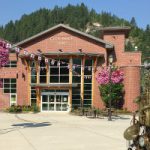OP/ED: Eating crow in defense of goats and chickens - City OCP falls short
So, I’m here today to nosh on a heaping helping of good, old-fashioned crow, as I totally reverse a passionate position I took in a similar column several years back. As long as said crow is locally-grown, I think I can choke it down.
What on God’s green earth is she talking about? you may be reasonably asking yourselves. Fair question. I’m referring to urban goats and chickens. Still not feeling enlightened? Okay, I’ll give you the long version. The city unveiled its Official Community Plan (OCP) a couple of weeks back – a remarkably complicated and detailed document intended to guide the city’s growth over a 20-year horizon, addressing issues from traffic infrastructure to housing to recreation to environmental stewardship. It’s that last arena that’s become a sticking point for me. While I think the OCP authors (take a bow, Phil Markin and Shannon Marshall) did an exemplary job and deserve many accolades and much respect for its completion, I think they left out a key element in our city’s potential for a sustainable future, and that’s local food production. Yes, they touched on community gardens, but for a city that’s constantly branding itself as superlatively green, they didn’t go nearly far enough. (Although that’s not their fault, they were addressing resident wish-lists and weren’t supposed to create new policy out of whole cloth – the “green” issue is a political one reserved for council, and rightly so). Still, we’re collectively dropping the ball with this particular oversight – and it’s a big ball, encompassing our own well-being, that of our community, and that of our entire globe. When someone, years back, suggested that city council allow residents to raise goats and chickens in their back yards, I thought it was the dumbest damned thing I’d ever heard. We can’t even get pet owners to behave responsibly, or fruit tree owners to act like grown-ups and stop attracting bears – and now these nincompoops want to add goats and chickens to the mix? Seriously? Perhaps, I thought, they were growing more than just veggies in that little plot out back, in a misguided homage to our Nelson neighbours. Turns out, they were right and I was, not just wrong, but grossly so. A friend of mine turned me on to a book called Animal, Vegetable, Miracle by one of my writing heroes, Barbara Kingsolver (not incidentally, said friend is the only person in the entire city who has attended, if not all, then the vast majority of public hearings like the one that unveiled the OCP. You take a bow, too, Leanne). The book, in turn, inspired me to do a little research. The majority of our individual resource consumption does not happen heating our homes, or powering our lights, or even driving to and from work every day. It comes from our insistence on eating diets comprised almost entirely of foods shipped from other countries, and even other continents. The fuel required for this indulgence, both in terms of transportation and storage, is staggering. One of Castlegar’s biggest issues is water – how do you suppose those bell peppers we enjoy throughout the winter are grown out of season? On farms that would otherwise be desert, of course – with conspicuous wasting of water irrigating lands not naturally designed for wintertime food production. Landfills are a big concern for us – ever read the stats on the methane production of a feedlot? It was enough to make me forgo my standing rib roast. (Okay, it really wasn’t, I love my beef, but it was gross, just the same). My point is not to make people feel guilty over eating their daily bread – no one loves to eat more than me – it is to get people, city officials included, to think a bit about where that bread is coming from, and what the hidden costs of that may be. Can we really call ourselves “green” while refusing residents the option of more sustainable, more responsible choices, like raising their own goats and chickens for milk, eggs and meat? And sustainability goes far beyond mere environmentalism. We’re begging, just begging, for a whole-sale famine in Castlegar. We no longer have the infrastructure, the knowledge, or the capacity to feed ourselves. Instead, we rely on transportation and agricultural networks spanning the entire globe – systems that are more politically maintained than market-driven. How reassuring. Natural disaster is a very real risk – we saw empty grocery shelves two years ago when a single storage facility’s roof collapsed under the weight of unseasonal snow. What happens when climate change makes our hazardous mountain-pass roads impassable for weeks or longer? We go without. Period. What about war, or food-based political manoevering that impacts our food supply instead of our lumber markets? Or a pesticide-resistant weed or bacteria that wipes out American monoculture grain or soy farms, forcing them to keep the rest of their food supply within US borders, thus leaving us to – that’s right, folks – starve. Pesticide-resistant weeds have already evolved – how naïve can we be, to assume we can keep up with natural selection and avert full-scale crop failure and the disaster that would ensue? Similar assumptions worked so well for us with antibiotics. Okay, lecture over – I haven’t begun to even scratch the surface, as myriad books have been written on the subject – but I think you get the general gist. I don’t want to cram it down your throat, anymore than I wish to cram crow down my own. Here’s the moral of my story: I was wrong to oppose urban animal husbandry. Any OCP that calls itself green and sustainable, any OCP that speaks of environmental stewardship without doing EVERYTHING possible to ensure local food production, not just for the sake of the environment, but to guarantee residents will be able to feed their families independent of what happens in the US or South America, falls short. We’re not talking about closing down Safeway and forcing everyone to become Survivorman – we’re talking about passing bylaws encouraging local residents who want to diversify and protect our food supply. Our answer to them was “no”, because of the logistical nightmare that will likely ensue (Columbia Avenue shut down as escaped goats meander down our critical thoroughfare: I’m not blind to the downside, although I’m enjoying the headline potential in there). So I guess we have to ask ourselves what our priorities are, and if sustainability means anything to us at all. Will we say “no” to goats and chickens … and thus our claim to stewardship, not to mention the hope we may be able to feed ourselves if global systems collapse? The upshot is simple. The City of Castlegar is green … when it’s convenient.


























Comments